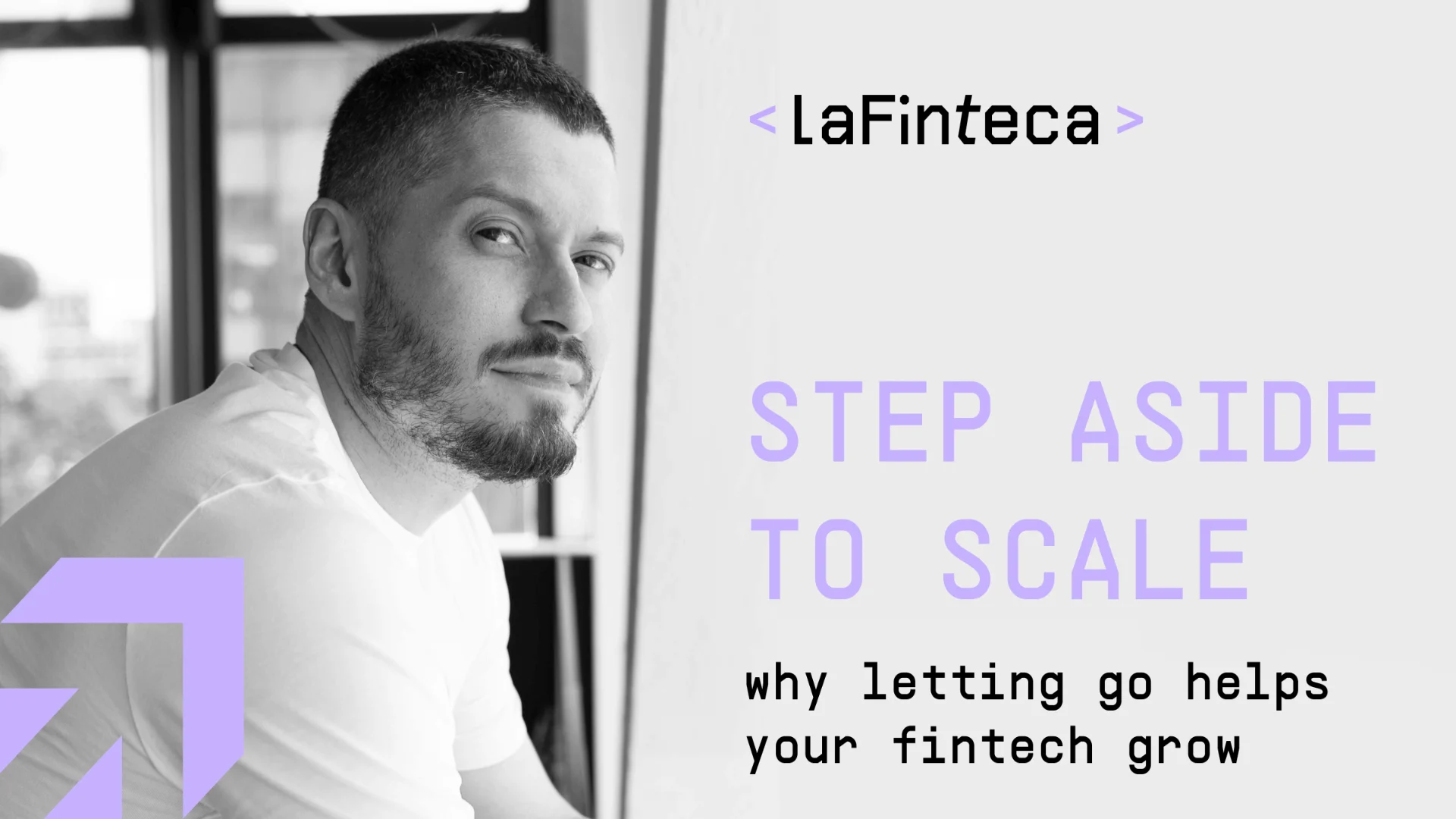
In any company, especially in the fast-growing fintech, founders are often the driving force behind every product decision, client meeting, and marketing campaign. But at a certain stage of growth, the same hands-on approach that sparked success can become a bottleneck. Letting go isn’t a sign of weakness—it’s a strategic move that enables scaling.
CEO of LaFinteca, Dmytro Rukin, puts it this way: “Founders often treat their startups like first-born children. But what worked for a toddler won’t work for a teenager. You have to step back so it can grow up.”
The founder’s paradox
Founders are uniquely positioned to understand the problem their product solves. They build the first version, sell the vision, and inspire early teams. But as the company grows, the complexity outpaces any single person’s capacity. Holding onto too many decisions leads to burnout, stalled momentum, and disempowered teams.
Dmytro Rukin reflects: “The hardest part was trusting others to make imperfect decisions. But over time, I realized: perfection isn’t scalable. Trust is.”
Recognizing the signs
Some indicators that a founder may be holding on too tightly include:
- Constant involvement in day-to-day operations
- Approval required for minor decisions
- Delays in hiring senior talent out of fear of “losing control”
- Teams waiting on input instead of taking initiative
Stepping aside doesn’t mean disappearing. It means shifting your energy to the areas where your impact is highest: strategy, capital, culture.
Building a leadership layer
Scaling requires leaders, not just executors. One of the first big steps is hiring people who are smarter than you in their field—and letting them lead.
“At LaFinteca, we started hiring not for what we needed immediately, but for what we knew we’d need in a year. That meant giving up control before it felt necessary,” shares Dmytro Rukin.
This move requires clarity: roles must be well-defined, metrics transparent, and values aligned. Without this foundation, delegation turns into chaos.
Establishing feedback and trust systems
Delegation isn’t a one-time event. It’s a process that demands structure. Weekly leadership syncs, transparent KPIs, and regular retrospectives ensure accountability without micromanagement.
Dmytro Rukin emphasizes: “We didn’t just hand off tasks—we created systems where decisions could be tracked, challenged, and improved. That’s how you keep quality while scaling.”
Maintaining founder visibility
Even as you delegate, your presence still matters. Founders must be visible to inspire and align teams.
Host monthly AMA sessions. Publish internal updates. Show up to customer interviews. This bridges the gap between strategic leadership and cultural continuity.
Conclusion
Letting go is not about losing relevance—it’s about making room for others to rise. The founder’s job evolves from doing to enabling, from building products to building the company.
Dmytro Rukin sums it up best: “I had to learn that my startup’s success wasn’t about how much I could carry—it was about how well I could pass the baton.”
Growth comes when founders step aside—not to step away, but to scale.
Also read my thoughts “Dmytro Rukin, CEO of LaFinteca: A fintech’s perspective on building resilience in LATAM”









